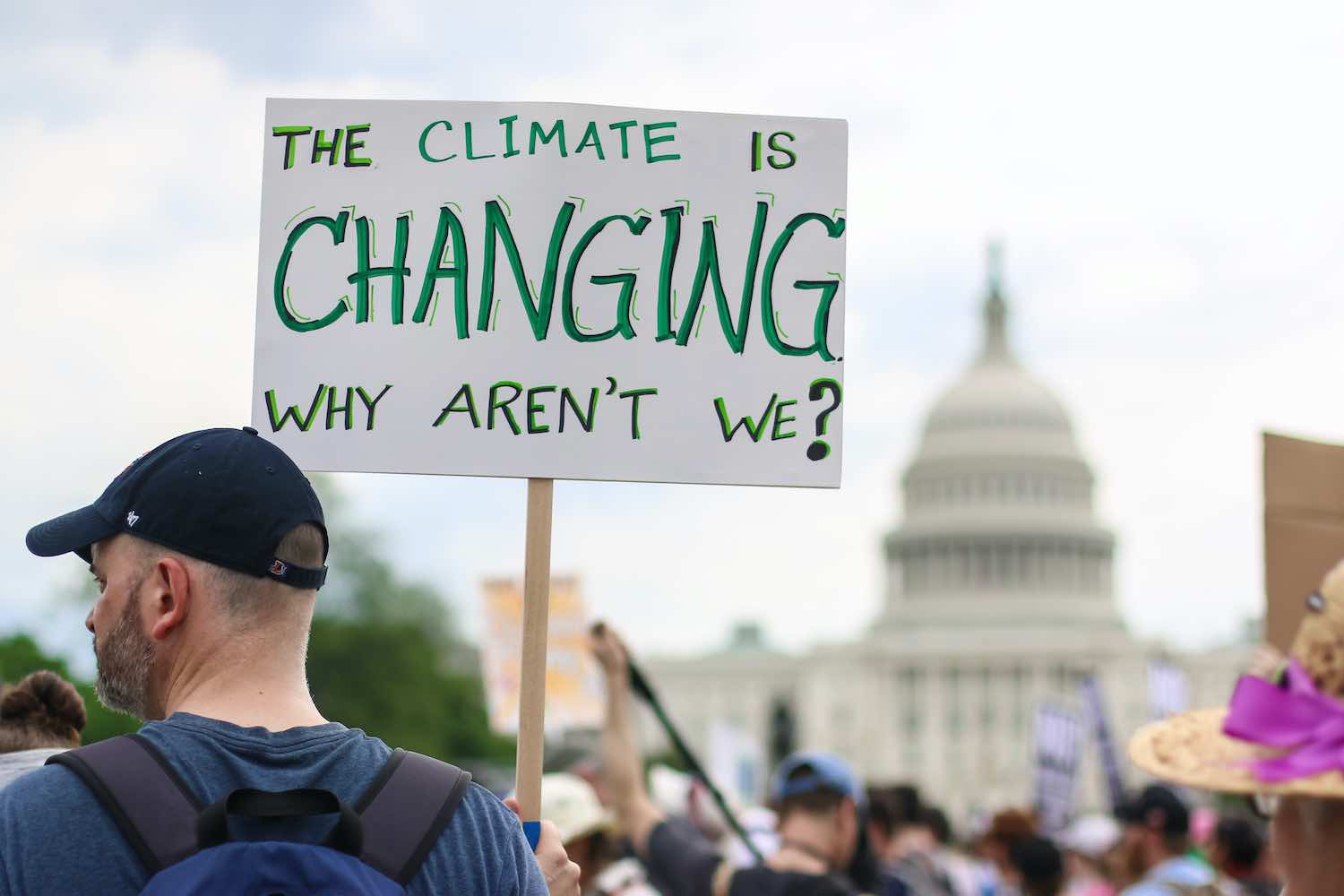ImpactAlpha, Nov. 12 – The 30th storm in a record-breaking hurricane season formed in the Caribbean. The U.S. Federal Reserve recognized climate change as an economic risk for the first time. President-elect Joe Biden reiterated his commitment to returning the U.S. to the Paris climate agreement.
And President Trump sacked his administration’s official in charge of the government’s national climate assessment due out 2023. It wasn’t the only climate-related casualty in the lame duck administration.
While the U.S. begins – fitfully – the transition to the Biden administration, investors in the U.S. and leaders around the world are moving ahead.
The U.K., France, Sweden, Denmark, New Zealand, South Korea, and Japan have set legally binding targets to reach net-zero emissions by 2050, China by 2060. The European Union upped its greenhouse gas reduction goals to at least 55% by 2030, and has earmarked 30% of its €750 billion in COVID recovery funds for green initiatives. And at a climate conference this week, the U.K. announced it will require large companies and financial institutions to report climate risks in line with the Task Force on Climate-related Financial Disclosures, the first major country to do so. The U.K. will also issue its first green bond next year.
“The transition to net zero will be the most significant transformation in economic history,” said Generation Management’s David Blood, speaking at the Green Horizon Summit, hosted by the World Economic Forum, City of London and the Green Finance Institute. “Net Zero will be the law of the land, and it’s critical that asset managers, asset owners, banks, insurance companies, recognize that and are aligning their portfolios to reflect that.”
That net-zero future is set to get a major boost with the re-emergence of the U.S. leadership on climate action. The election results have accelerated the already record flow of capital into environmental, social and governance stocks, as well as investment in renewables, climate tech and companies leading the low-carbon transition. Biden’s plans, for example, call for a carbon neutral power sector by 2035 and net-zero emissions by 2050.
In “Investing In The Race To Net Zero: One Year On,” Morgan Stanley analysts increased their forecasts for the pace and scale of adoption of renewables, electric vehicles, green hydrogen and biofuels, and pointed to more 161 publicly traded companies that could benefit, from utilities to automakers to materials companies.
In its roundup, “Investors Bet Biden Will Accelerate Shift to Renewable Energy,” The WallStreet Journal reports investors are shorting fossil fuel stocks. Last month, Florida-based NextEra Energy, the U.S.’s largest renewable-energy company, briefly overtook Exxon Mobil in market value. Hedge funds such as Atlas Impact Partners, Welton Investment Partners and HITE Hedge Asset Management are shorting fossil fuel-related stocks. BNP Paribas’s Environmental Absolute Return Thematic will go long on green energy and short companies failing to make the transition.
By the time of the next global climate conference (originally scheduled for Glasgow this month), “Net-zero transition plans will become the norm for large companies,” said Mark Carney, the former governor of the Bank of England and the U.N. Secretary-General’s Special Envoy on Climate Action and Finance.“Consumer preferences and new climate policies are creating the greatest commercial opportunity of our time.
Divided government. Biden’s transition team is plotting a two-track course of action: an ambitious agenda if Democrats win control of the U.S. Senate in Georgia’s special election in January, and a more modest plan if they don’t. Biden’s full $2 trillion climate plan would likely require significant bipartisan support.
There’s plenty the Biden administration can do on its own. The first order of business: unwinding four years worth of environmental rollbacks. Biden is mulling an White House climate office to oversee climate policy. Names being floated for a climate czar to head the office include former Secretary of State John Kerry, an architect of the Paris climate accord, and Washington governor Jay Inslee.
“It’s imperative that President-elect Biden take a whole-government approach to climate action right from the get-go,” Michael Bloomberg argued in an op-ed. “To his credit, his ambitious climate plan recognizes that there is much he can accomplish without Congress.”
This week, Trump removed Mike Kuperberg, the Department of Energy employee overseeing the National Climate Assessment, a report on global warming published every four years. The last assessment, in 2018, concluded that human activities including the burning of fossil fuels “has intensified the natural greenhouse effect, driving an increase in surface temperatures and other widespread changes in Earth’s climate that are unprecedented in the history of modern civilization.” Trump dismissed it at the time. Last week, Trump demoted Neil Chatterjee, the chairman of the Federal Energy Regulatory Commission, who was known for support of renewables and carbon pricing.
Climate transparency. The U.K.’s adoption of the recommendations of the Task Force on Climate-related Financial Disclosures, will help the UK in “pioneering new technologies and shifting finance towards a net-zero future,” said Chancellor of the Exchequer Rishi Sunak. Under the U.K.’s new system, companies and financial institutions will have to align with the TCFD by 2025. The largest, or “premium,” companies will have to begin such disclosures in January.
Bloomberg, who chaired the TCFD effort, called widespread and uniform disclosure of climate risk “one of the most powerful tools we have in reducing emissions, because more transparency will create stronger incentives for companies to take action, by driving more private investment to those that do.” A global standard for climate reporting is critical, he said, but will not happen without U.S. leadership.
“If Biden seizes the opportunity, it may prove to be one of the most important turning points in the global fight against climate change.”
Climate as a systemic risk. Investors won’t be able to say they weren’t warned about the coming reset in the pricing of climate risk. “Growing awareness of climate risk as an investment risk is driving a tectonic shift in capital, and with it, asset valuations,” said BlackRock’s Larry Fink at this week’s Green Horizon Summit.
The converse also is true. “Given that climate change is an existential risk, it follows that those companies that are part of the solution to climate change will create enormous value,” Mark Carney said at the summit, “The financial sector is increasingly focused on this opportunity of a lifetime.”
In the U.S., the Fed’s Financial Stability Report report noted that “acute hazards, such as storms, floods, droughts, or wildfires,” and rapid shifts in public perceptions of risk can produce abrupt repricing events and direct losses that in turn could lead to “an increased frequency and severity of financial shocks.”
The Federal Reserve has been a laggard among central banks. It is expected to join the Network for Greening the Financial System, a group of 75 central banks focused on understanding and mitigating climate risks. In a statement accompanying the report, Fed governor Lael Brainard – a top contender for Treasury secretary in a Biden administration – said it was time to move to “the stage where the quantitative implications of those risks are appropriately assessed and addressed.”











